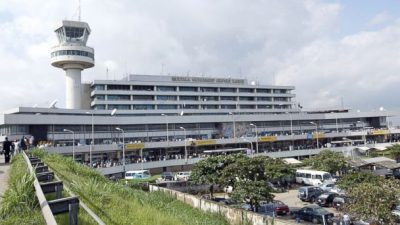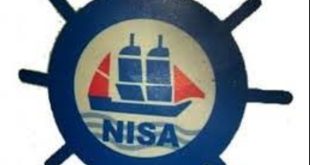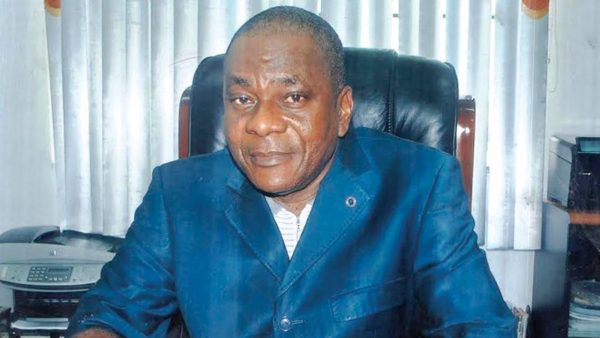- Shippers’ Council can’t handle aviation – Expert
- Bakassi deep seaport exposed to political dangers
By Kenneth Jukpor & Oyeniyi Iwakun
As the National Transport Commission (NTC) bill reaches the final stages in its passage, the leadership of the Nigerian Senate, the upper legislative chamber, has included the aviation sector in the bill.
The inclusion of the aviation sector has been one of the major reasons the bill stalled at the Senate over the years and just as it raised divergent views at the Senate; it has also raised conflicting opinions among transport experts and stakeholders in the country.
Essentially, the main objective of the bill is “to provide efficient economic regulatory framework for the transport sector, mechanism for monitoring compliance of government agencies, transport services providers and users in the regulated transport industry with relevant legislation and to advise government on matters relating to economic regulation of the regulated transport industry.”
It argues that though one of the cardinal objectives of the transport sector reforms introduced by the federal government is to bring about efficiency in the area of service delivery and reduce cost of doing business in the industry, service charges have however, continued to increase, thereby forcing many transport users to take their businesses to rival ports in the West African Sub-region, with consequent massive revenue losses to our nation.

Speaking to MMS Plus on the introduction of aviation to NTC, Barr. Osuala E. Nwagbara maintained that the law if eventually passed with aviation included would be too complex because aviation is a very complex field.
“Including aviation in the National Transport Commission (NTC) would distort the focus of the NTC. NTC was initially targeted to regulate the rail transport, maritime and the road transport, so I wouldn’t support the inclusion of aviation. Aviation should be managed as a distinct and very technical enterprise. It is expected that an independent body or agency should be saddled with the regulation of tariff for the aviation industry as well as playing the regulatory role in terms of standards of service. A separate commission would have to be established to carry out these responsibilities. These functions shouldn’t be brought into the National Transport Commission bill.
Noting the lack of human capital as the bane of many public enterprises in the country, Nwagbara added that Nigerian Shippers’ Council has proven to be effective in carrying out other functions except the new ones that involve the regulation of aviation.
“We have recognized expertise in the Nigerian Shippers’ Council to take on the responsibilities of regulating the rail, roads and shipping; but the Council doesn’t have the capacity to take on the regulation of the aviation. Aviation isn’t Shippers’ Council’s jurisdiction so it would require a lot of training and retraining” he added.
Recall that the Deputy Majority Leader, Senator Bala Naallah had told MMS Plus during an exclusive chat that the National Transport Commission (NTC) bill couldn’t be passed because the Senators differed on the problem of including aviation as most argued that it was internationally regulated by the civil aviation authority and inappropriate to be under the NTC regulation.
“The committees have gone far with the works. The only problem we envisaged is having Aviation that is internationally regulated by the civil aviation authority to come under the NTC regulation. It is impracticable. Where we are at the moment is on the need to leave aviation on its own because of its sensitivity as an internationally regulated industry which all member countries must conform with. So, one of the requirements is that you must have an independent regulatory body which we have as the Nigerian Civil Aviation Authority (NCAA). So, any attempt to bring it under any other banner will amount to a clear breach of the international regulation. So, we do not want to be the one singing a different tune at international fora.” Naallah told our correspondent.
Bakassi Deep Seaport Exposed
There are indications that the proposed Bakassi deep seaport is doomed to fail and also prone to political blackmail because its major accessible channels are through Cameroonian waters, according to the Chairman, Nigerian Ports Consultative Council, Otunba Kunle Folarin.
Otunba Folarin also opined that the economy of Cross Rivers State wouldn’t sufficiently guarantee the cargo volume needed to make the project viable.
Experts have questioned the viability of Bakassi deep seaport especially as a result of the multiplicity in Nigeria. Bakassi port is also tipped to suffer the same natural challenges of low draft as the Calabar port which has consumed billions of naira for dredging yet the channel remains the same.
Speaking exclusively with MMS Plus recently, the Chairman, Nigerian Ports Consultative Council, Otunba Kunle Folarin viewed the issue from the political dimension as he explained that the location of Bakassi deep seaport might not be strategic enough because of the age-long dispute of the area which is Cameroonian government’s control.
He said “Bakassi is located in a disputed area. You have to cross Cameroonian waters before you get to Bakassi. What if the Cameroonian government decides one day that all Nigeria bound cargoes would not be allowed to pass through its territory, what would Nigeria do? It means no cargo would be able to access the port. So we also have to consider the political implications of that project”.
It should be noted that the Bakassi deep seaport in Cross Rivers; Kribi deep seaport in Cameroon and Ibom deep seaport in Akwa Ibom are very close to each other forming a tripod with their location and their business plans also aim to cover the same markets.
Realizing some of these challenges, the Governor of Cross River State, Mr. Ben Ayade said; “We will need a permanent naval post at the construction site and the entrance of the construction site with a patrol vessel that is ocean going so that you can patrol the whole of Bakassi Peninsula and the border between Nigeria and Cameroon to ward off crime and unwanted people who will come in for criminality.”
Copyright MMS Plus.
All rights reserved. This material, and other digital content on this website, may not be reproduced, published, broadcast, rewritten or redistributed in whole or in part without prior express written permission from KINGS COMMUNICATIONS LIMITED.
 MMS PLUS NG – Maritime, Aviation, Business, Oil and Gas News Online Newspaper with coverage in Maritime, Oil and Gas, Aviation, Power and Energy as well as Financial News
MMS PLUS NG – Maritime, Aviation, Business, Oil and Gas News Online Newspaper with coverage in Maritime, Oil and Gas, Aviation, Power and Energy as well as Financial News










